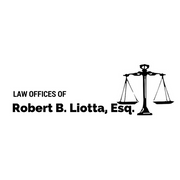The Living Trust Scam: What is it & How to Avoid it

Everyone wants to ensure that their loved ones are taken care of and their wishes are respected after they are gone. For some, a living trust is the ideal way of transferring belongings to their heirs, allowing them to bypass probate and maintain their privacy. Unfortunately, unscrupulous scam artists use the confusing nature of estate planning law to prey on those worried about their families, selling expensive trusts to those who don’t need them. Knowing how to avoid these scams can save you thousands of dollars and avoid major problems down the road.
How to Avoid the Living Trust Scam
Don’t Take Unsolicited Advice
Scam artists will mostly call or send mail with an invitation to a seminar about living trusts, where their targets will be subjected to horror stories about estates tied up in probate and family members fighting over inheritances. They rely on their targets’ lack of knowledge with legal terms like probate and executor, and they use that as an opportunity to further coerce them into believing that a living trust is the only option for them. These seminars are almost never reputable, as attorneys and other professionals do not offer unsolicited advice.
Explore Other Options
 Any trustworthy estate planning professional will present you with a variety of options and carefully explain the benefits and disadvantages of each. If you’re only being presented with one option by someone who actively tries to talk you into establishing a trust rather than writing a will, chances are you’re the target of a scam. Only trust a licensed, practicing professional. Even if the con artist presents themselves as a licensed attorney, pay attention to the way they display information and if they try to heavily persuade you to establish a living trust.
Any trustworthy estate planning professional will present you with a variety of options and carefully explain the benefits and disadvantages of each. If you’re only being presented with one option by someone who actively tries to talk you into establishing a trust rather than writing a will, chances are you’re the target of a scam. Only trust a licensed, practicing professional. Even if the con artist presents themselves as a licensed attorney, pay attention to the way they display information and if they try to heavily persuade you to establish a living trust.
Consult With an Attorney
The individuals running these seminars may actually set up a living trust for you, but many will just sell you packs of documents that are readily available online. Some con artists will even sell you worthless documents that aren’t valid at all. An attorney’s responsibility is to act in your best interest, so let an accomplished professional handle your estate planning, walk you through the options, and draw up documents that accurately reflect your wishes.
Estate planning is often confusing and complex, which is why the Law Offices of Robert B. Liotta, Esq. is committed to providing compassionate, effective legal guidance to clients throughout Westmoreland County, PA. Whether you need to update your will or talk about establishing a living trust, you can rely on this accomplished attorney for objective advice and help achieving your goals. Learn more about his estate planning services online or call (724) 334-9870 to discuss your needs with a respected legal professional.
About the Business
Have a question? Ask the experts!
Send your question

